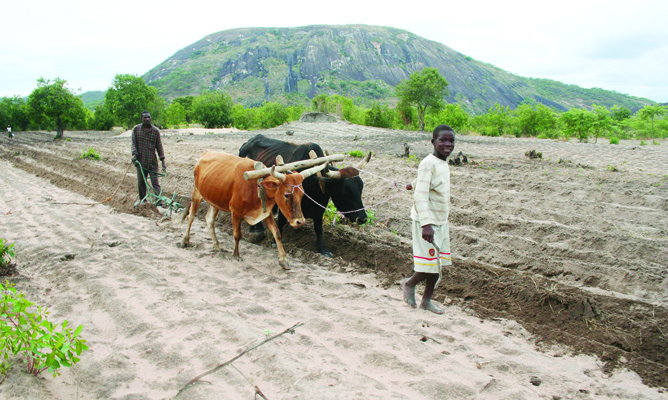
VARIOUS stakeholders have expressed concern at lack of food security in the country and called for national dialogue to influence the formulation of pro-poor policies.
By Phyllis Mbanje
The levels of poverty throughout the country have reached unprecedented levels and in urban dwellings, the bulk of the people are unemployed and scrounging for survival.
The same scenario is also prevalent in rural areas, compounded by the poor rainfall patterns which have reduced farming yields. Most people in the rural areas practice subsistence farming.
Poverty Reduction Forum Trust (PRFT) chairman Godfrey Kanyenze told a sensitisation meeting of stakeholders on a proposed Rural Basic Needs Basket (RBNB) that a ZimStats survey showed that 94,5% of employed people had informal jobs.
The methodology for implementing a RBNB is part of a larger policy goal of good governance which, if pursued, can achieve poverty reduction and attain the Millennium Development Goals (MDGs) as well as usher the country into the post 2015 Sustainable Development Goals (SDGs).
“Both rural and urban poverty are essential components of economic governance that must be given full attention in research, policy analysis, advocacy and campaigns,” Kanyenze said.
PRFT programmes co-ordinator Tafara Chiremba said the basic needs basket was a monthly social research tool which consisted of two components, namely the food and non-food price monitoring survey and the household income and expenditure survey.
- Chamisa under fire over US$120K donation
- Mavhunga puts DeMbare into Chibuku quarterfinals
- Pension funds bet on Cabora Bassa oilfields
- Councils defy govt fire tender directive
Keep Reading
“Through the BNB, PRFT tracks the cost of basic day-to-day necessities, including mealie meal, sugar, salt and milk, housing and utility bills, required by an average family of five to live an acceptably decent and healthy lifestyle,” he explained.
The BNB survey tool is used to generate regular and reliable statistical and qualitative information of the basic cost of living for ordinary residents in specific locations, and push for policies and programmes that cushion vulnerable urban households.
However, Chiremba noted that there was need to translate their policy advocacy into programmes on the ground that practically addressed poverty.
PRFT executive director Judith Kaulem said they were piloting the rural version of the BNB in the Dora area near Mutare.
“Following a study in that province, we discovered that issues of food insecurity were of concern in the area which has been affected by critical poverty drivers like land degradation, changes in rainfall pattern and unsustainable farming methods,” she said.











